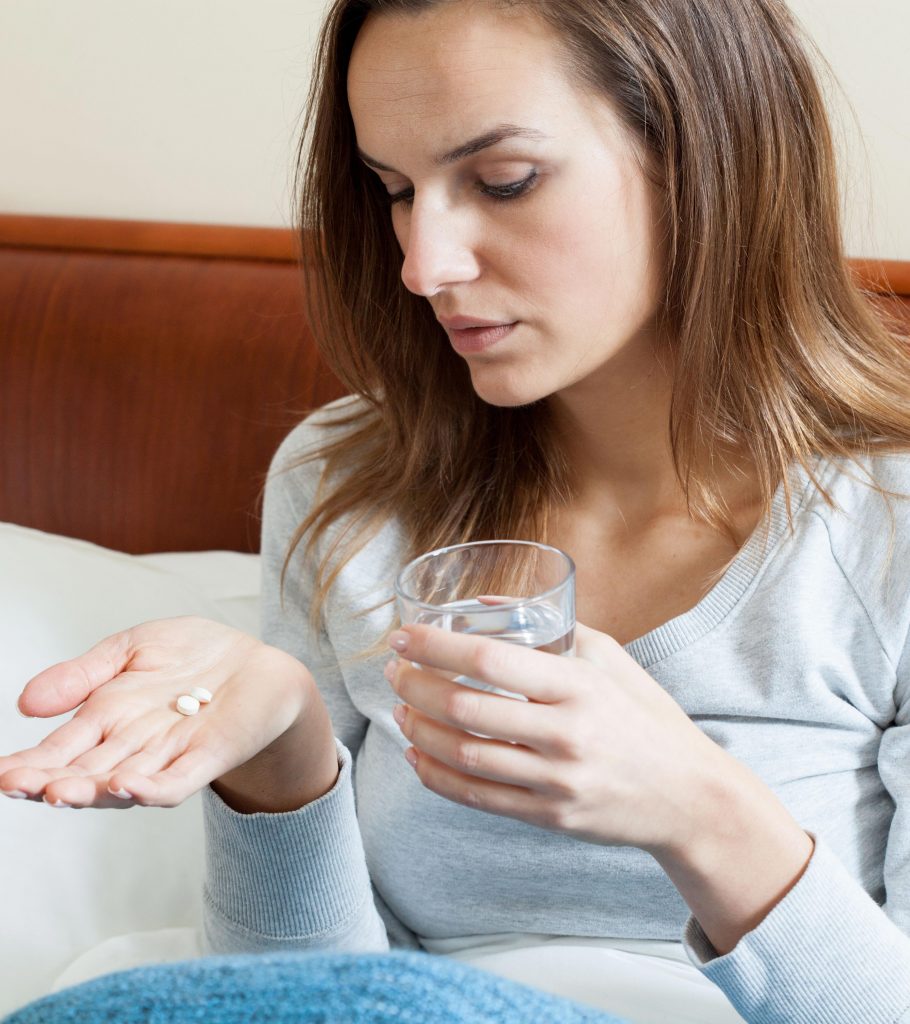The impact of hormones while breastfeeding could take a toll on maternal mental health, often causing them to rely on medications such as Effexor while breastfeeding.
Although most new moms face panic or depression-like symptoms post-childbirth and while breastfeeding, consuming any medications during the lactation period may also affect the baby. However, if you are a new mom experiencing such a situation, you may be considering quick therapies such as taking Effexor for your condition.
Hold your thoughts before you take the pill, and read this post to answer all your concerns about the safety of Effexor (Venlafaxine) and its side effects. This post also explains the mechanism of action of this drug in treating postpartum depression and other ailments while breastfeeding.
What Is Effexor?
Effexor, also popular as Venlafaxine, is an antidepressant belonging to the group of selective serotonin-norepinephrine reuptake inhibitors (SSNRIs). The drug affects chemicals in your brain that tend to be the reason for depression. Venlafaxine increases serotonin and norepinephrine levels in your brain to improve your mood and mitigate the pain while nursing your infant (1).
Is It Safe To Have Effexor While Breastfeeding?
Yes! You can continue breastfeeding your little one even if you are taking Effexor. However, what works for 100 women might not work for you, so consult your doctor before you take the medication. The doctor will do a risk-benefit analysis and prescribe the correct dose depending on your psychological condition. It is necessary to ensure medication safety for you and your baby. Remember, the benefits of nursing a newborn outweigh the drug’s potential risks, and even a minuscule amount of Effexor passes into your breast milk.
Thus, any health issues that occur due to exposure to the drug through your breast milk are absent or minimal. Also, you should only have the doctor’s recommended dose of the medication to avoid the risk of side-effects. However, if you still happen to experience any side-effects of the drug then see your doctor as soon as possible.
Health Benefits Of Effexor While Breastfeeding
Effexor is a popular medication that helps improve mood, treats anxiety disorders, and enables you to lead a peaceful and happy life. Here are some of the main benefits of Effexor (2).
1. Cures Depression:
Effexor helps treat depression while you breastfeed your infant. The recommended daily dose is 75 mg once daily. Your doctor may start with a lower dose of 37.5 mg for the first 4 to 7 days of treatment and then increase it slowly to 75 mg once daily (3).
Kelsilisk, a mom, shares her experience of using Effexor to treat her depression symptoms during her postpartum phase, “I’ll probably ask to be brought back up on my medications because I’m feeling overwhelmed, which is probably due to having a toddler and newborn. Do I think I have some post partum depression going on? Probably. I don’t think it’s bad or severe or anything but I don’t want it to get bad, either (i).” In another blog she adds, “I did end up going up to 75mg on my Effexor XR medication to see if it would help with my exhaustion and I think it has a little (ii).”
2. Cures Generalized Anxiety Disorder (GAD):
Venlafaxine also treats symptoms of generalized anxiety disorder effectively. Your doctor may begin with a dose of 37.5 mg once every day for four to seven days and gradually increase the dose depending on your response to the drug.
3. Treats Social Anxiety Disorder:
Effexor is an effective cure for social phobia. If you suffer from social anxiety disorder while nursing your newborn,then having the doctor’s recommended dose of the drug can help you get social without any concerns.
4. Cures Panic Disorders:
Having the recommended dose of 75 mg of Venlafaxine once every day can help you fight panic attacks while nursing your newborn. Consult your doctor for the appropriate dose of the medication, if you happen to suffer from panic disorder soon after the delivery (4).
Effexor And Breastfeeding – Side Effects
Even though Effexor treats several different anxiety disorders while breastfeeding, you may also experience some side-effects of the drug. Find below some common medicines (5).
- Insomnia
- Loss of appetite
- Unusual dreams
- Fatigue or drowsiness
- Blurred vision
- Heartburn
- Headaches
- Excessive sweating
- Vomiting
- Nausea
- Diarrhea
- Chills or tremors
- Constipation
- Dry mouth
- Weight loss
- Runny nose
- Abdominal pain
- Gas
- Allergic reactions
- Chest discomfort
- Seizures
- Increased cholesterol
- Enlarged pupils
If any of these side effects persist for a long time, then see your doctor as soon as possible for medical assistance.
Your doctor may suggest Effexor while breastfeeding if the benefits outweigh the risks. Although this drug is safe to consume during nursing, the effects may vary in each woman. If you have been using Effexor before breastfeeding, consult your doctor on the proper dosage you can take during nursing. If you are exploring alternative treatments, the doctor may prescribe different antidepressants or other non-invasive methods to help you cope with depression. While on Effexor, if you notice side effects in yourself or the baby, stop taking the medicine and consult a doctor.
Key Pointers
- Venlafaxine, or Effexor, raises serotonin and norepinephrine levels in the brain and treats panic disorder, social anxiety, GAD, and depression.
- Doctors can prescribe a safe dosage for Effexor while breastfeeding.
- Side effects of Effexor may include appetite loss, exhaustion, heartburn, migraines, nausea, vomiting, chills, weight loss, and abdominal pain.
- If your baby experiences any side effects, stop taking the medication and consult your doctor.
Learn about the multifaceted effects of Effexor, an FDA-approved treatment for depression and anxiety. Explore its off-label applications, side effects, and surprising disparities in pricing in this informative video.















